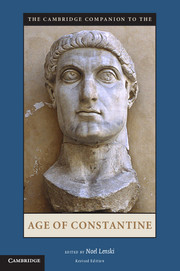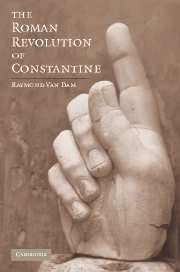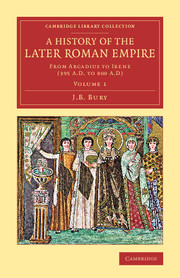The Early Christians
The early Christians were by no means a homogeneous group, let alone a church. This is the fascinating story of the beliefs, practices and experience of individual Christians of antiquity, their relationships to Jewish tradition and the wider Roman world, and the shockwaves they caused among their contemporaries. Ancient Christians are closely connected to today's world through a living memory and a common textual heritage - the Bible - even for those who maintain a distance from Christianity. Yet, paradoxically, much about the early Christians is foreign to us and far removed from what passes for this faith as it currently stands. The distinguished historian Hartmut Leppin explores this paradox, and considers how such a small, diverse band of followers originating on the edge of the Roman Empire was able within less than three centuries to grow and become its dominant force under Emperor Constantine and his successors.
- Provides a kaleidoscopic view of early Christianity, revealing the development of this new religion from multiple angles
- Privileges social, economic and political history over theology to focus on the experience of individual Christians of antiquity
- Uses a diverse range of ancient sources to let voices of the past become audible
Reviews & endorsements
'Leppin's The Early Christians is a monumental attempt at conceptualising the development of one of the most influential religious movements in history through, and in open acknowledgment of, its rather messy origins. The lively narrative gives centre stage to individual historical actors to open a refreshingly human perspective on the world of the early Christians. The book's English translation will facilitate renewed engagement with this important topic across the wide readership that it deserves.' Ulrike Roth, University of Edinburgh
'Hartmut Leppin has written a richly stimulating book that brings to life the colourful variety of early Christian groups and individuals as they explored what allegiance to Christ meant for all aspects of their daily lives, beliefs and identities and negotiated their place among Jewish and pagan neighbours in society.' Thomas Graumann, University of Cambridge
'The book is a treasure house of detail … It is beautifully produced, fluently translated from the German original, illustrated with numerous plates in black and white and in colour, with copious notes towards the end of the book, an international bibliography and a comprehensive index of persons and places.' Ray Morris, Classics for All
'I have learned considerably from the book. It witnesses immense erudition and is a genuinely inspiring read.' Anders Klostergaard Petersen, Bryn Mawr Classical Review
Product details
No date availableAdobe eBook Reader
9781009050203
0 pages
8 b/w illus. 11 colour illus. 2 maps
Table of Contents
- Introduction
- Prologue: a dead body is lost to the world
- 1. Neither Jewish nor pagan?
- 2. Christian authorities
- 3. (Not) of this world: caring for self and others
- 4. Citizens of two worlds
- Looking back and ahead
- Postscript.








